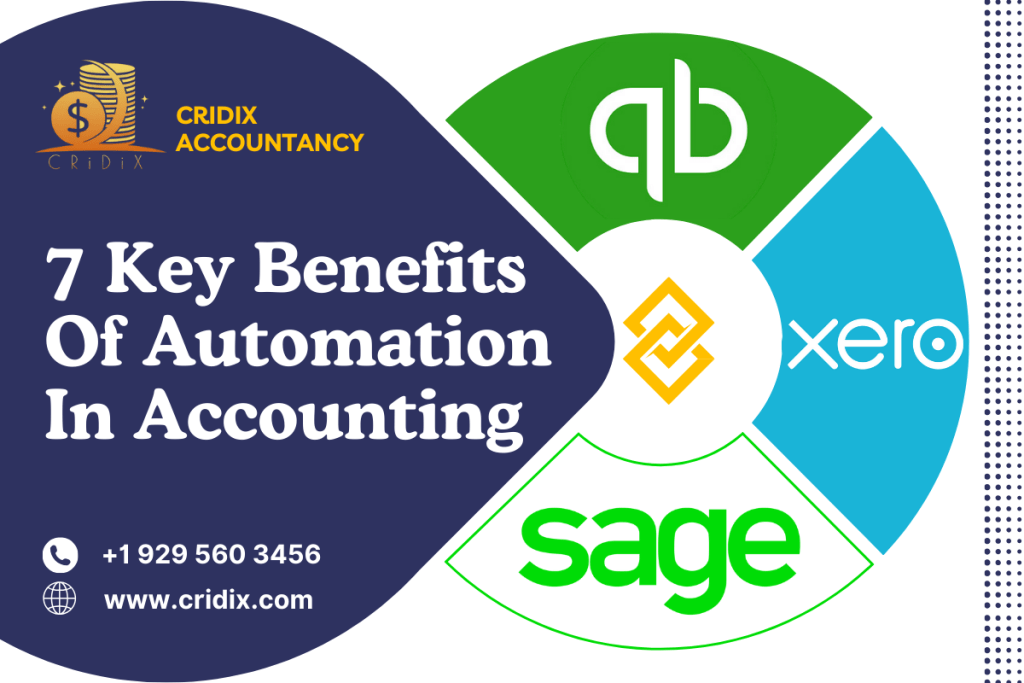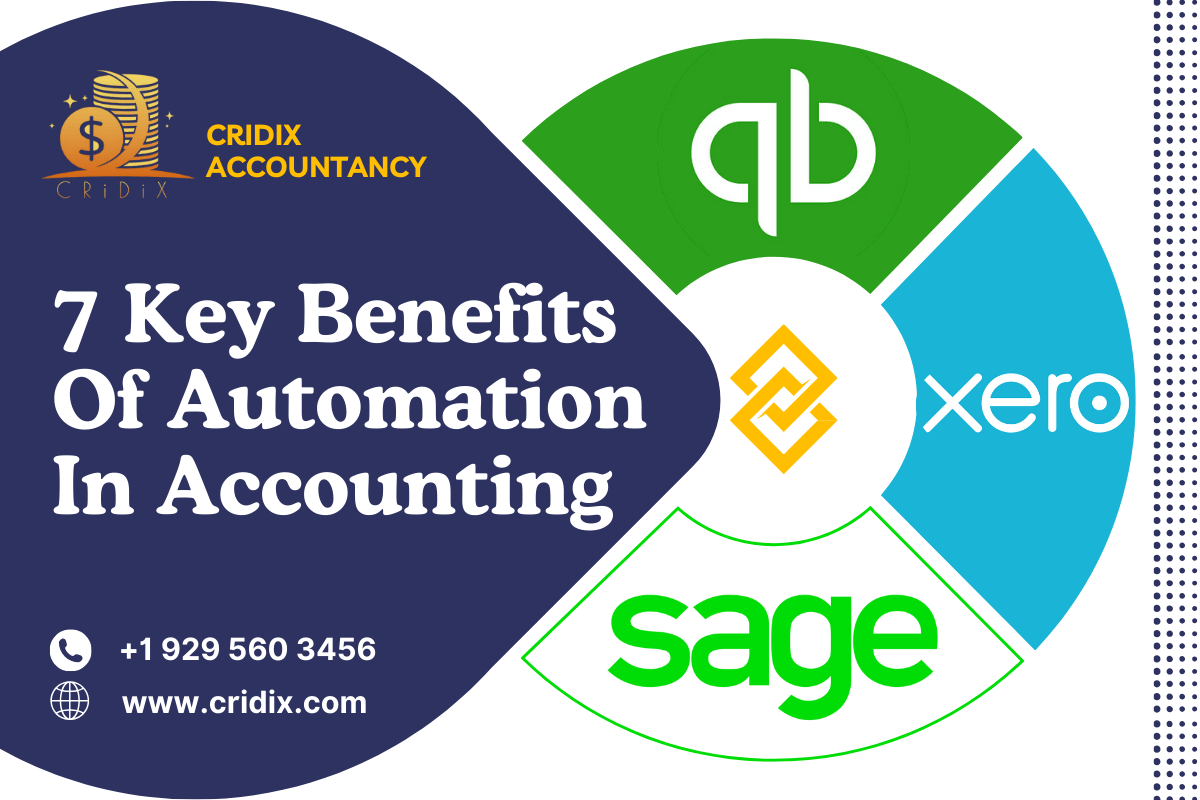
Introduction
A century ago, the term “computer” referred to a person tasked with manual number crunching. In the 21st century, the meaning has transformed as computers and software now surpass human capabilities in handling numerical tasks with greater speed and precision. Automating accounting through software accelerates routine tasks, allowing human accountants to dedicate their time to more advanced analytical work.
What is Automation Accounting?
Automation Accounting software streamlines tasks like manual data entry and bank reconciliation, freeing up human accountants for strategic roles. It leverages technology for activities such as accounts reconciliation and financial data updates. The goal is not to replace humans but to automate repetitive tasks, allowing accountants to focus on high-value activities like financial advice and analysis.
This approach simplifies complex processes, eliminating the need for tasks like creating extensive ledger files. Many companies begin their automation Accounting, targeting areas like Accounts Payable, Accounts Receivable, and General Ledger to demonstrate concrete benefits.
Benefits Of Automated Accounting
Automating accounting brings numerous benefits, saving time by eliminating manual data entry and repetitive tasks. This time-saving allows for a focus on strategic activities that enhance business value. Automation accounting minimizes the risk of human error, ensuring greater accuracy in financial reporting and reducing the likelihood of costly mistakes. Real-time visibility into financial data is a key advantage, facilitating improved decision-making and forecasting.
Overall, Automation accounting enhances business efficiency and effectiveness. Cridix is well-versed in integrating AI tools with cloud-based Bookkeeping and Accounting tools. You can enjoy our Bookkeeping service at a low cost.

Time-Saving
Automation Accounting ensures a faster turnaround in tasks, enabling quicker and more efficient processes. Automating the accounting process is a means to save considerable time and effort, allowing for a redirection of resources toward other essential tasks. The financial closing process poses a significant challenge for accountants due to its time-intensive nature.
However, effective use of Automation Accounting tools can eliminate the need for extensive reconciliation. Such automated solutions not only save time and effort for accountants but also enable quicker and more accurate delivery of results. This efficiency opens up opportunities for handling more clients and expanding market presence.
Data Accuracy
Automated accounting is like having a super-accurate assistant for your finances. It’s good at handling numbers and calculations without making mistakes, which makes your financial records super reliable. With automated systems, you can be more confident in your financial decisions because the chances of errors are much lower. It’s like having a tech-savvy assistant that ensures your numbers are always on point and trustworthy.
Data accuracy is essential for financial operations and maintaining a positive client reputation. Even meticulous professionals can make subtle mistakes, such as misplacing a number or forgetting a decimal. Automated accounting significantly reduces the likelihood of errors, ensuring enhanced accuracy in financial processes.
Also Read: 8 Best Ways to Manage Small Business Financial Management
Cost Effective
Adopting automated accounting not only boosts accuracy but also brings significant cost-saving benefits. By automating repetitive tasks like data entry and calculations, businesses can save valuable time and reduce the need for manual labor. This efficiency translates into cost savings as it allows staff to focus on more strategic and value-added activities.
Additionally, automated systems often require less physical infrastructure and maintenance compared to traditional methods, further contributing to overall cost-effectiveness. In essence, automated accounting is not just about precision; it’s a smart financial move that optimizes resources and helps businesses operate more efficiently at a lower cost.
Real-Time Integrations
Real-time integrations in accounting are a game-changer. These integrations allow seamless and instantaneous flow of data between various systems and platforms, providing a live, up-to-the-moment view of your financial landscape. With real-time integrations, you can make informed decisions promptly, based on the most current information available.
This not only enhances efficiency but also ensures that your financial insights are always up to date. Whether it’s syncing transactions, updating inventory levels, or monitoring cash flow in real-time, these integrations empower businesses to stay agile and responsive in a fast-paced, dynamic environment.
Dynamic Impact of AI in Accounting and Bookkeeping During the Year 2025
Data Security
When it comes to your financial information, safety is a top priority with automated accounting. These systems use strong security measures, like secret codes and limits on who can access what, to keep your financial data private and safe from unauthorized eyes. Regular updates and following industry security rules add an extra layer of security. So, while enjoying the benefits of Automated Accounting you can also relax knowing your important financial info is in good hands and well-protected.
Decision Making
In automated accounting, effective decision-making is streamlined and enhanced. Automated systems provide real-time access to correct and up-to-date financial data, facilitating quick and well-informed decisions. By automating repetitive tasks and data analysis, these systems empower businesses to focus on strategic concerns, ultimately leading to more effective decision-making.
The efficiency and accuracy of automated accounting contribute to a dynamic decision-making process, aligning organizational strategies with the rapidly evolving business landscape. Data from various sources is input into accounting software, where the program efficiently manages, stores, retrieves, and generates reports based on that data. Advanced software, using augmented reality (AR), facilitates convenient access to future projections and market trends, displayed on meeting room screens.
Fewer Human Errors
One of the notable advantages of automated accounting is the reduction in human errors. Automated systems perform calculations and data entry with precision, minimizing the risk of mistakes that can occur in manual processes. By relying on technology to handle routine tasks, businesses can enhance the accuracy of their financial records, contributing to more reliable and error-free outcomes. This reduction in human errors not only saves time and resources but also instills confidence in the integrity of financial data, ensuring a more dependable foundation for decision-making and analysis.
Explore more from Our AP and AR Services that we done using various Software.
What are the Challenges of Automated Accounting?
Automated accounting has its benefits, but there are challenges too. First off, it can be a bit pricey to set up initially. Also, some folks in the team might not be keen on switching to the new tech, so there’s a learning curve. Security is a biggie – with everything digital, there’s always a worry about keeping your financial info safe from hackers. And don’t forget the need for regular updates and maintenance to keep the system running smoothly.

Here we mentioned a list of challenges that you can face while depending on Automated Accounting:
Plus, technology keeps evolving, so your automated system might need an upgrade to keep up with the latest trends. While it helps reduce some errors, there’s still a need for human eyes to catch potential slip-ups. So, it’s all about finding the right balance between tech and human touch.
Final Words
In conclusion, automated accounting is a game-changer for small businesses, making things smoother and more accurate. Sure, there are some challenges like initial costs and keeping things super secure, but the potential for better financial processes and smarter decision-making is huge. It’s like finding the sweet spot between using cool automated accounting tech and keeping that human touch. So, as businesses dive into this tech world, taking it step by step and focusing on the positives will set the stage for a more efficient and effective financial journey ahead.

